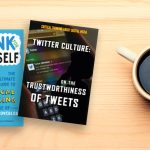By Rob Buyea
Rob Buyea, author of the popular Mr. Terupt and The Perfect Score novel series, shares his ideas on his writing process and how any writing, even bad writing, is better than no writing.
You sit down to a blank piece of paper or a new document on your computer screen—and you freeze. Don’t feel bad, and don’t panic. You’re not alone. Getting started can be one of the hardest parts of the writing process. How do I handle it? I coach myself. It’s a daily reminder that what I write doesn’t need to be perfect the first time—it hardly ever is. To be honest, there are many instances when what I write isn’t even good—though I still try. I tell myself to stop worrying and just start writing.
Why is getting started so important? Because once I begin, it’s not as hard to keep it going. And as I heard one teacher tell her students during a recent school visit, “Bad writing is better than no writing.” It’s true. You can’t do anything with no writing, but as soon as you put that first thought down, you have something you can work to improve. And for me, getting started is crucial because I learn more about my characters and story by doing the work. As I write, I figure things out and come up with new ideas. In fact, that is the way I get ideas more than any other—by simply doing the work and continuing to write. And all that stuff that takes shape and comes to me while I’m doing the work is what I put to use when I finally go back and begin to rewrite and revise. It is during the rewriting and revising when you should be concerned about making it good, better, your best. Not on your first pass.
But when is it time to start over? This is an important question. I resist the urge to start over for as long as I can. Here’s why. By page twenty things have evolved and I could go back and rewrite, but I don’t because inevitably, more will change by the time I reach page forty. I wait as long as I can before rewriting so that I can put in as many of the changes as possible in one pass. That being said, revising is still most of my work by far!
I hope this tidbit on writing and getting started will help some of your students, but I doubt it will work for all. Why? Because the writing process is not one-size-fits-all. That is to say, it is not the same for everyone. For certain, there are some authors who have everything mapped out before getting started. Perhaps planning in great detail is something that helps this group of writers to begin. The point is this: It’s important to share as many different strategies and tips with your students as possible, so that they can figure out how the process works best for them.






